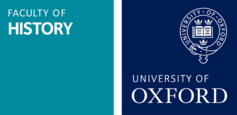The Preliminary Examination in Ancient and Modern History (AMH) is a single nine-month course run by the Faculty of History and the Faculty of Classics. It does not count towards your final honours degree, but you are required to pass in order to progress into the Final Honour School.
The course consists of four papers. The formal Examination Regulations may be found in Appendix 1. The next sections briefly describe the four units, and full descriptions of each paper can be found on Canvas via the links below.
The knowledge and skills you will acquire over the whole course are outlined in Section 2 | Teaching and Learning, which also focuses on the basic skills you need to develop in the first year.
Choosing your Options
In making your choices of period or subject in these four papers, you should be aware that:
- for pedagogical or administrative reasons (such as the wish to teach first-year students within college), some Colleges may restrict the choice of their undergraduates in one or more of British Isles History, the Optional Subject, and Approaches/Historiography/ Texts/Language papers;
- the range of European and World history papers offered in the first year for Prelims differs from that available in the second and third year, examined in Finals;
- similarly, at the modern end, the British Isles History papers offered in Finals differ from those offered at Prelims.
For Prelims, your college tutor may expect you to have made a preliminary decision, by correspondence, about your period of Greek or Roman History before you come up, so that you can be given some introductory reading in advance. In addition, the Faculty will have written to you in March, to see if you want to take one of the optional language papers (for which central teaching has to be arranged in advance of your arrival). The choice of other options should be discussed with your tutors when you arrive. In particular, you will want to take advice as to whether it is more sensible to concentrate your papers in either Greek or Roman History, or to mix them; this will depend on your interests and background knowledge.
There is no formal language requirement for admission to this course and the Optional Subjects are not studied in the original languages. Of the possible choices for paper 4, Herodotus and Sallust do require study of texts in the original Greek and Latin and if you do not have any knowledge of either of these languages, your choice will be limited to the other two topics (Approaches to History or Historiography: Tacitus to Weber); or you can take one of the optional Beginning or Intermediate Greek or Latin papers.
Depending on the choices available to you, you will do either two papers in Ancient History and two papers in Modern History or three papers in Ancient History and one paper in Modern History or three papers in Modern History and one paper in Ancient History.



